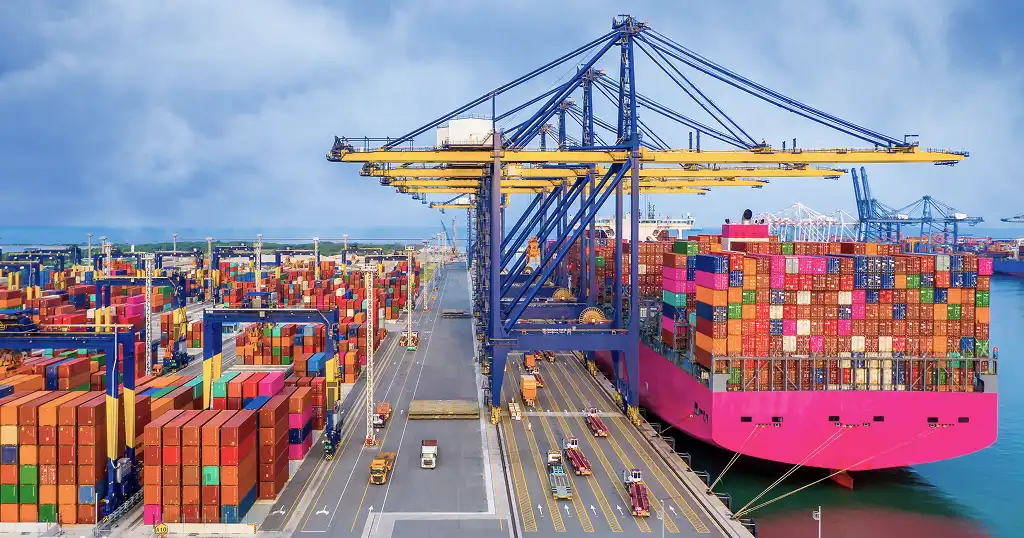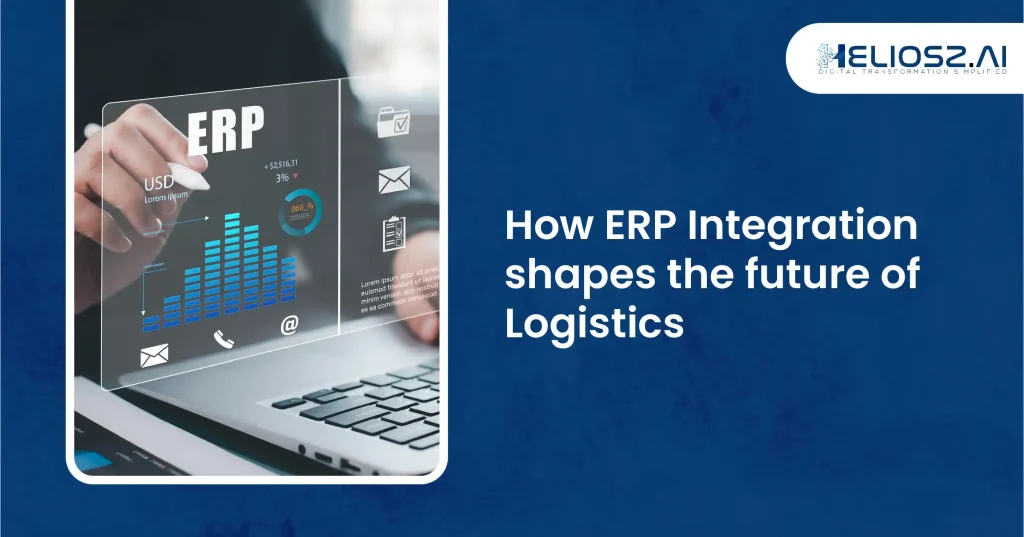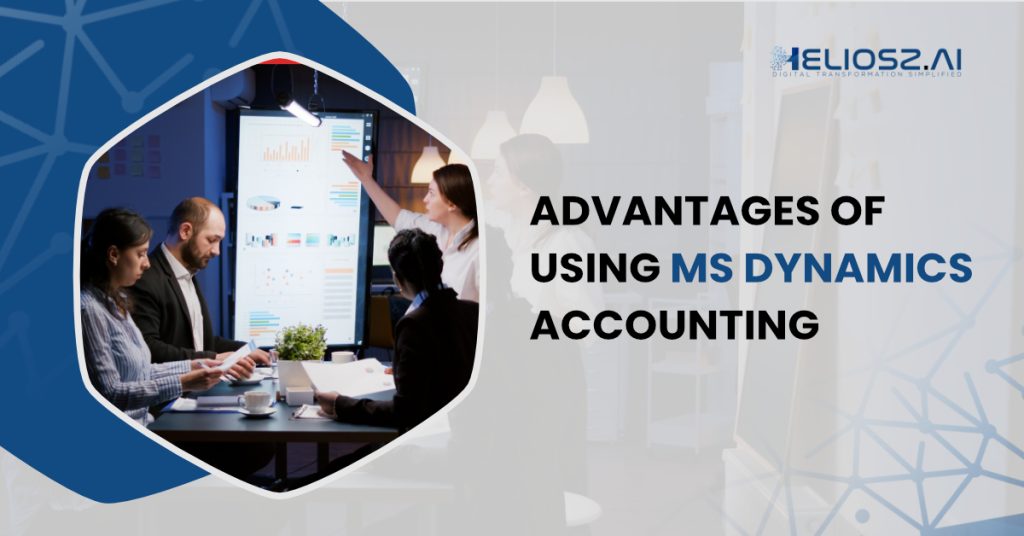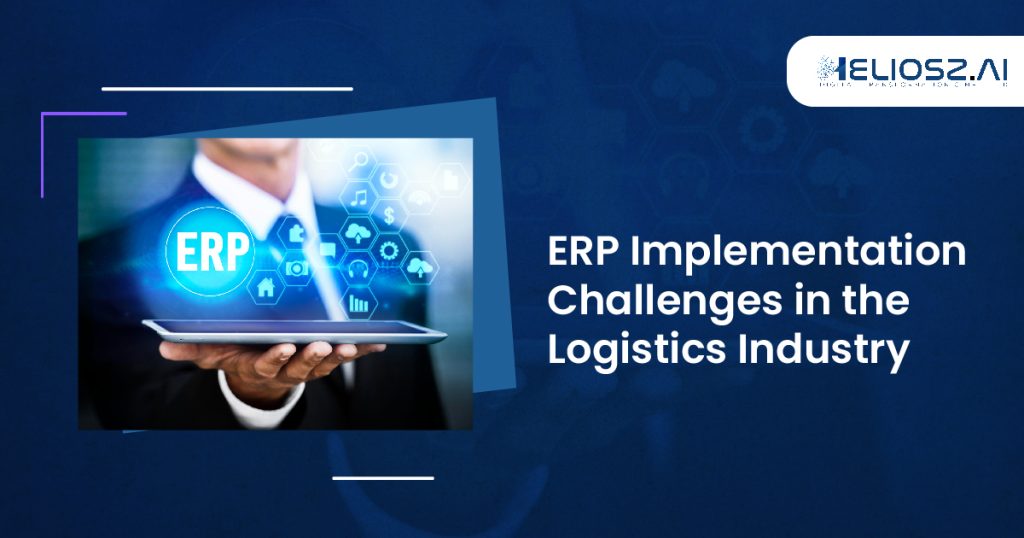Nowadays, in a world market that operates fast, the logistics industry is not anymore, the movement of goods only, it’s the lifeline of commerce as well. Logistics companies are adopting Enterprise Resource Planning (ERP) systems for a transformational solution in response to increased efficiency, transparency, and scalability requirements.
These all-in-one platforms help companies reduce labor from routine tasks and reengineer the whole supply chain management practice. The introduction of technology in logistics, which is fast becoming more and more digital and integrated, with ERP integration at the cutting edge that completely overhauls the conventional ways of transportation, tracking, and control of goods throughout the world, is definite.
This informative article will take you through the demystification of the scope of ERP integration in the logistics industry to make it future-proof.
Table of Contents
Understanding ERP System Integration in Logistics
Enterprise Resource Planning (ERP) is the type of software that businesses use to handle and combine many core processes. From procurement and production to human resources and finance, ERP systems integrate critical data into a common base, thus creating a single source of truth.
ERP systems are also used in logistics, wherein synchronization and transparency are critical aspects.
Logistics is one of the areas in which ERP plays a major role with several logistics’ functions being the key drivers for its increased demands such as real-time tracking of shipments, inventory management, order processing, and vendor coordination.
This consolidation of information obsoletes the inefficiencies and mistakes that are usually unavoidable with fragmented systems. The rise of ERP in logistics is due to the fact that more and more global supply chains require synchronization so that each step of logistics operations goes hand in hand.
Key Benefits and Major Roles of ERP Integration in Logistics
Enhanced operational efficiency
The focus of ERP on the 100% perfection of operations is what makes it the most valuable. Through the automation of tasks such as order processing, shipment tracking, and billing, ERP systems minimize human interference, thus reducing errors and turnaround times.
This, in turn, is a huge driving force for improving the overall operational efficiency and third-party logistics service providers can handle more transactions in shorter durations without sacrificing the quality or speed.
Real-time data access and decision-making
Decision-making is crucial in logistics. The ERP systems give decision-makers the power to track item availability, shipment location, and warehouse capacity in real time.
The real-time reactivity feature elevates the organization’s capacity to handle disruptions hence, customer needs are always met without delay.
Optimized resource allocation and inventory management
The term ERP primarily refers to resource planning and is considered a logical expansion. Thanks to ERP systems these companies nowadays manage their inventory levels also warehouses properly.
This is done by calculating the levels of stocks, the timing of orders, and demand whose forecasting is a matter of the ERP integration of logistics companies allowing them to stock their inventory levels at the optimum rate and to avoid both overstocking or stockouts.
Besides, resource allocation crowdfunding campaign operations such as warehouse space and fleet management work more efficiently and the over costs are minimized as a result of resource function.
The ERP system can use machine learning algorithms to further improve demand forecasting based on real-time data and historical data. This capability ensures that inventory always matches actual demand, reducing overstock and inventory.
Additionally, the ERP system analyzes inventory flows to optimize warehouse planning, further increasing productivity by ensuring that high-demand items are easily accessible and have storage space on the greater scale
Flexibility and scalability in logistics processes
Logistics managed to scale several parts of its business as it grew. But, to optimize chain management processes, logistic systems should be at least as large as the supply chain that they serve.
Ideally, the software allows transportation and logistics service companies to add more functionalities to their systems without the need for a major transfer of goods.
Companies that implement ERP software can operate applications on a cloud service instead of a local computer and this will lead to no need for increasing IT support.
Automation and process streamlining
ERP systems are the main solution that quickens the flow of the processes in logistics through automation. The processes that were previously manual—such as order fulfillment, dispatch coordination, and invoice generation—are now automated.
This reduces not only human mistakes but it also makes the processes quicker. From those logistics organizations to carry out at full capacity resulting in high efficiency.
Advanced analytics for predictive logistics
The implementation of ERP systems into logistics results in logistics companies being equipped with advanced analytics that can secure data from the past to predict future trends.
Now companies can use advanced analytics to forecast demand, allocate the most efficient route, and even detect unforeseen problems in their supply chain. This is even transforming the way companies do their operations.
Integration with emerging technologies (AI, IoT, Blockchain)
Every day, ERP systems are getting along with the latest technology. They are now using innovative techs like Artificial Intelligence (AI), the Internet of Things (IoT), and Blockchain.
AI handles the machine learning algorithms that make decisions based on logistics processes that are quite simple with the help of real-time information. Besides, the IoT devices can be connected to a network and will change data in real-time so the user knows the status and location of products.
In contrast, Blockchain helps companies fight against corruption and even more importantly to assure that the records of that product are secure and transparent.
In addition, AI can provide advanced analytics on supply chain data that can then track patterns and anomalies, thereby empowering a business to predict potential disruptions or inefficiencies. IoT devices are not restricted solely to tracking the location of shipments; rather, they can monitor conditions such as temperature or humidity, which is critical for carrying sensitive products- such as pharmaceuticals or perishables.
Blockchain, on the other hand, ensures that all the transactions and movement of products are recorded in a transparent manner and provide an immutable record, increasing the trustworthiness between logistics partners and their customers.
Ready to Transform Your Logistics? Get a Free ERP Consultation Now
The Future of Logistics with ERP Integration
Digital transformation and the evolving logistics landscape
For digital transformation to take place successfully in the logistics industry, the foundation must be laid by ERP systems. ERP integration is the key element in the process, as it will allow companies to adopt other digital tools and technologies that will help build more agile and connected logistics networks.
This transformation will yield more robust and adaptable industries capable of overcoming future challenges.
The impact on supply chain transparency and visibility
Both logistics companies and customers recognize that transparency in the supply chain is an important aspect of a feasible supply chain. Through ERP integration, logistics companies can electronically trace the whole supply chain which starts with the manufacturer and proceeds to the customer.
This level of clarity serves as the major contributor to consumer trust, customer retention, and the opportunity for companies to settle any issues quickly.
Sustainable logistics through ERP-driven optimizations
Sustainability is an ever-increasing concern in the logistics industry, and ERP systems are of vital importance for environmental protection. ERP systems are also active in this area by solving issues like route planning optimization, idle time reduction, and cutting down on the excess usage of resources.
On top of these, linking ERP and sustainability with reports is the means that companies use to control their carbon emissions.
Unlock the Power of ERP Integration – Explore Our Solutions Today
Next-Generation ERP Integrations with Heliosz.AI
Navigating the ever-changing business environment of today, you will be worried about how to keep your ERP systems future-ready which is crucial for staying a step ahead. Deal with Heliosz.AI since our ERP specialists employ the latest technologies to modify the ERP integration you need.
Take your company to a new level with Heliosz.AI, an ally who will prioritize your ERP investment to the fullest and position your business for a successful future. Get a taste of a seamlessly interconnected, intelligent ERP system and accomplish any operational goal you dream of.
Conclusion
Integration of the ERP software is not just shaping the future of logistics; it is revolutionizing it. ERP systems provide the necessary agility, transparency, and efficiency that are needed for logistics companies to be competitive in the current economic environment of the fast-paced and globally connected market.
To automate operations, improve decision-making processes, and introduce advanced technology integration, logistics companies are provided with ERP systems that make them stand out from the pack and help them become the best in the following years. In the end, ERP systems will act as the driving force in a future where logistics will not only be more efficient but also more sustainable and resilient.
Boost Efficiency in Your Supply Chain – Learn How ERP Can Help!






























